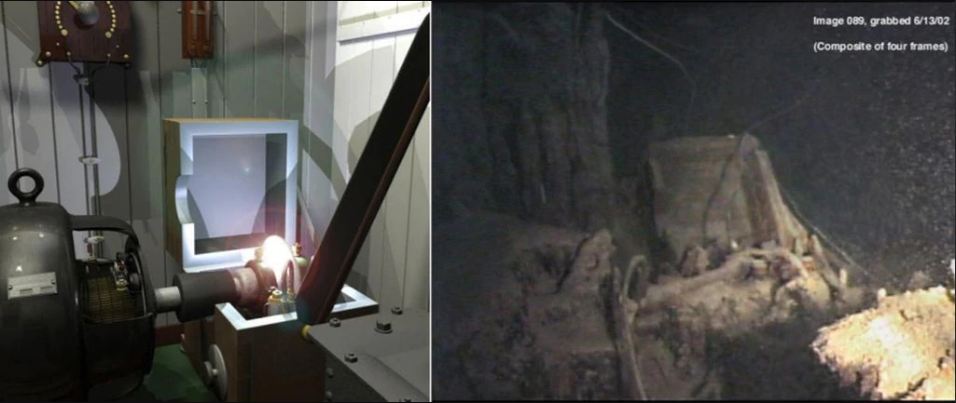NORFOLK, Va. (CN) — As a salvage crew prepares to retrieve the Titanic’s wireless telegraph machine, the U.S. government formally objected in court, saying the private expedition could violate an international agreement not to disturb the site of the iconic shipwreck.
U.S. District Judge Rebecca Beach had green-lit the salvage job last month, finding that recovery of the equipment that crewmen used to frantically send distress signals before the ship sank in 1912 would “contribute to the legacy left by the indelible loss of the Titanic.”
In her ruling, Smith noted that the National Oceanic and Atmospheric Administration was challenging the mission but that the constitutional question was not ripe since the agency had not yet entered a formal appearance in the proceedings.

R.M.S. Titanic Inc., the successor to Titanic Ventures, has enjoyed exclusive salvage rights to the wreckage since 1994, pursuant to admiralty litigation in the Eastern District of Virginia over which Judge Smith has long presided.
The Atlanta firm first began taking stock of the Titanic's remains in 1987, two years after its discovery by a joint U.S.-French expedition 2.5 miles below the ocean surface and 400 miles off the coast of Newfoundland.
In seeking permission to cut into the corroded roof of the Titanic’s deck house so it can retrieve the telegraph machine with the use of an unmanned submersible, RMST promises minimal damage to either the remains of the 1,500 who perished in the sinking or the wreckage itself.
Though RMST failed to get the court's permission to cut into the wreck back in 2000, Smith's latest ruling focuses on evidence from RMST’s engineers that the Titanic wreckage is rapidly deteriorating and on the verge of a full collapse. RMST’s engineers also highlighted the favorable location of the Titanic’s Marconi room beneath an open skylight.
Joseph Mortati, professor of info technology and analytics at American University, told Courthouse News that the room’s placement on the top deck does make recovering the telegraph machine a more manageable feat than the salvage of other iconic artifacts, such as the ship’s grand staircase.
It is also unlikely that human remains would be found near the machine, Mortati added, since operator Jack Phillips was seen leaving the Marconi room before the ship sank.
Mortati published a 2013 book called "Collision Course — How Good Business Decisions Sank the Titanic and Why.”
“The stories of the two Marconi wireless operators — Jack Phillips and Harold McBride — are well-documented, due in no small part because McBride survived the sinking,” the professor said in an email. “While I think the machine itself has great historical value, I don't see how it better tells this story.”
In a memo supporting the motion to intervene meanwhile, Assistant U.S. Attorney Kent Porter points to an international agreement with the United Kingdom that the United States signed into law two years ago, saying it “precludes penetrating the wreck for salvage purposes, or if any activity would physically disturb the hull, artifacts or human remains.”
Porter says any salvage activities are subject to federal regulation.
“RMST did not and has not sought an authorization from the secretary of commerce for this or any of the other activity set forth in its Research Design,” the 22-page memo states.

Smith had ordered the salvage firm in May to provide NOAA with any video or audio recordings made during the dive, which is set for this summer.
More than 1,500 passengers and crew died when the Titanic sank on its maiden voyage from England to New York in 1912. The salvage firm has argued to the Virginia court that retrieving the machine will tell the story of the chaos that ensued after the Titanic struck an iceberg, as men bravely tapped out distress calls “until seawater was literally lapping at their feet.”
In Monday’s complaint, Porter quotes the court's conclusion in 2000 that RMST planned to “access the cargo hold in search of first-class luggage, mail, and an alleged diamond stash.”

Subscribe to Closing Arguments
Sign up for new weekly newsletter Closing Arguments to get the latest about ongoing trials, major litigation and hot cases and rulings in courthouses around the U.S. and the world.











